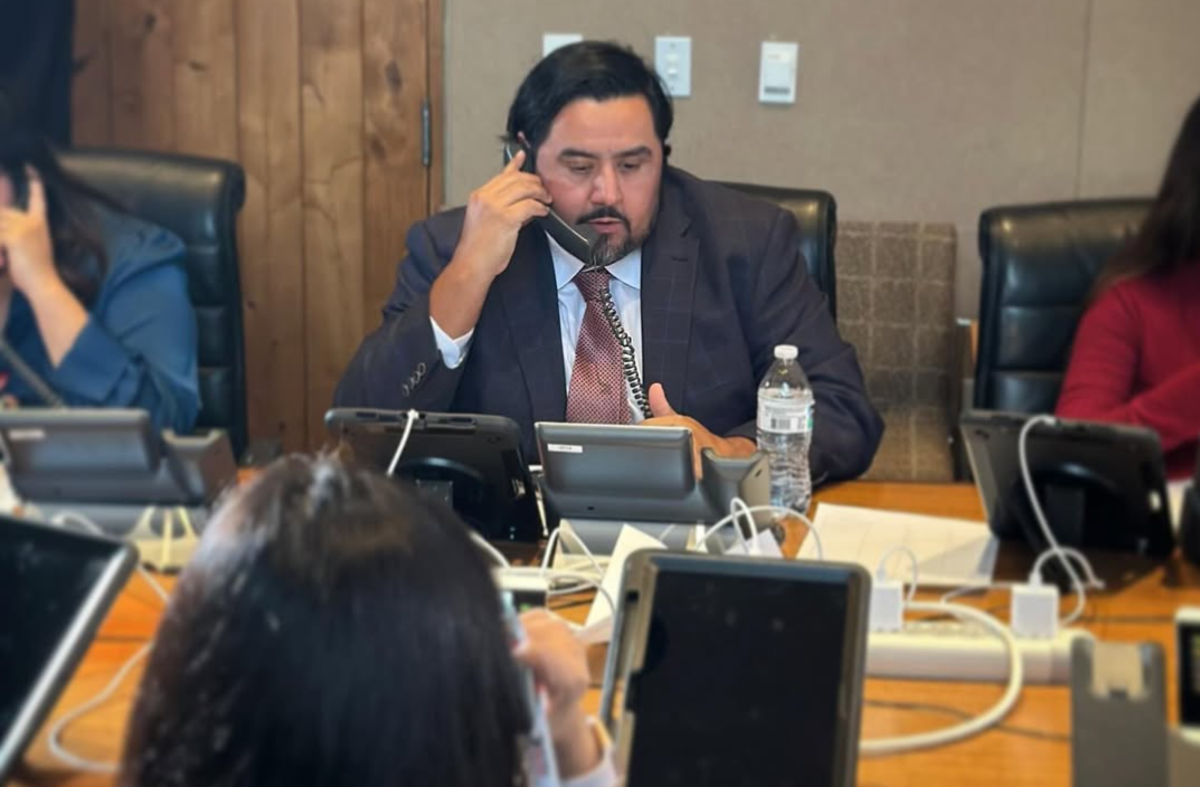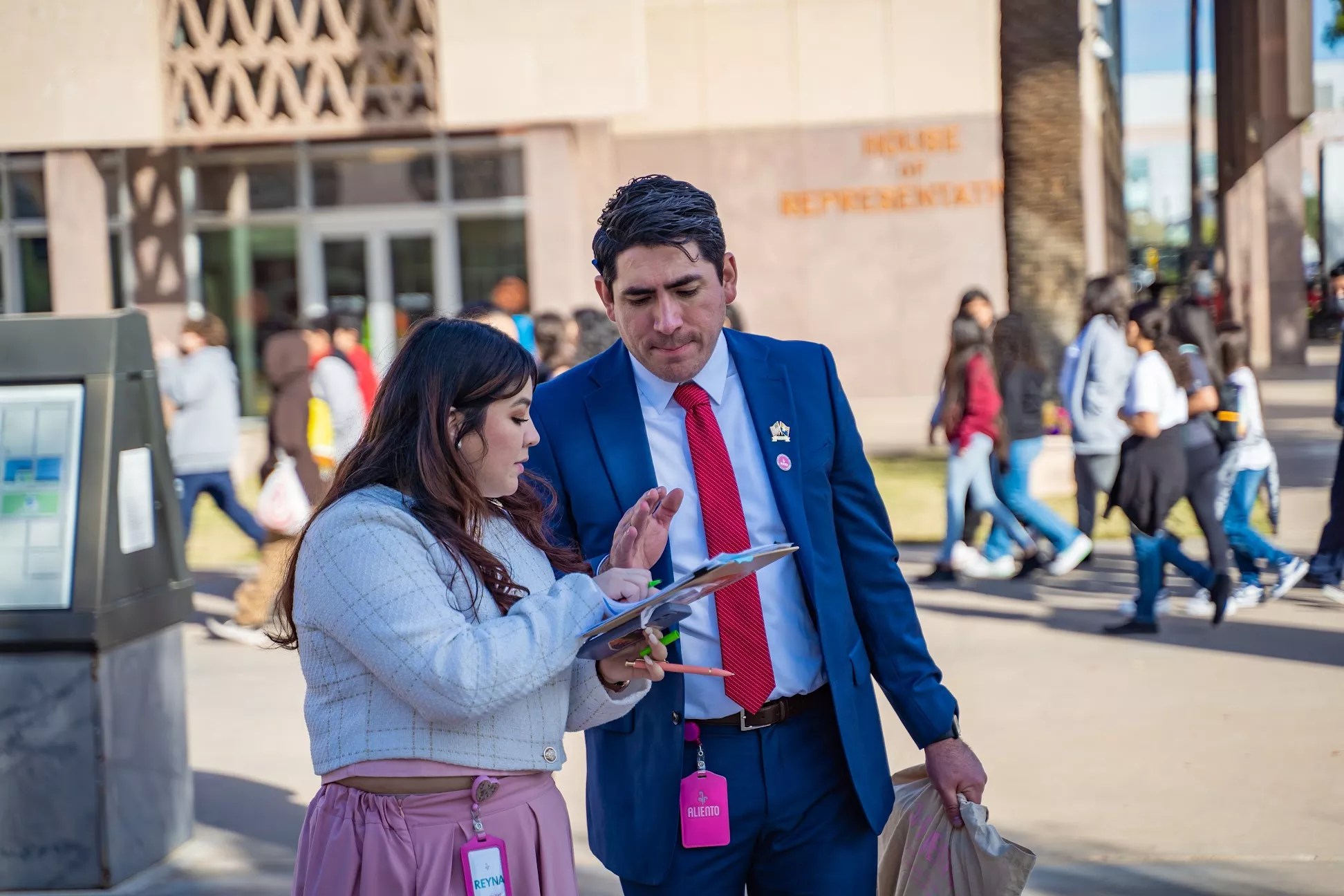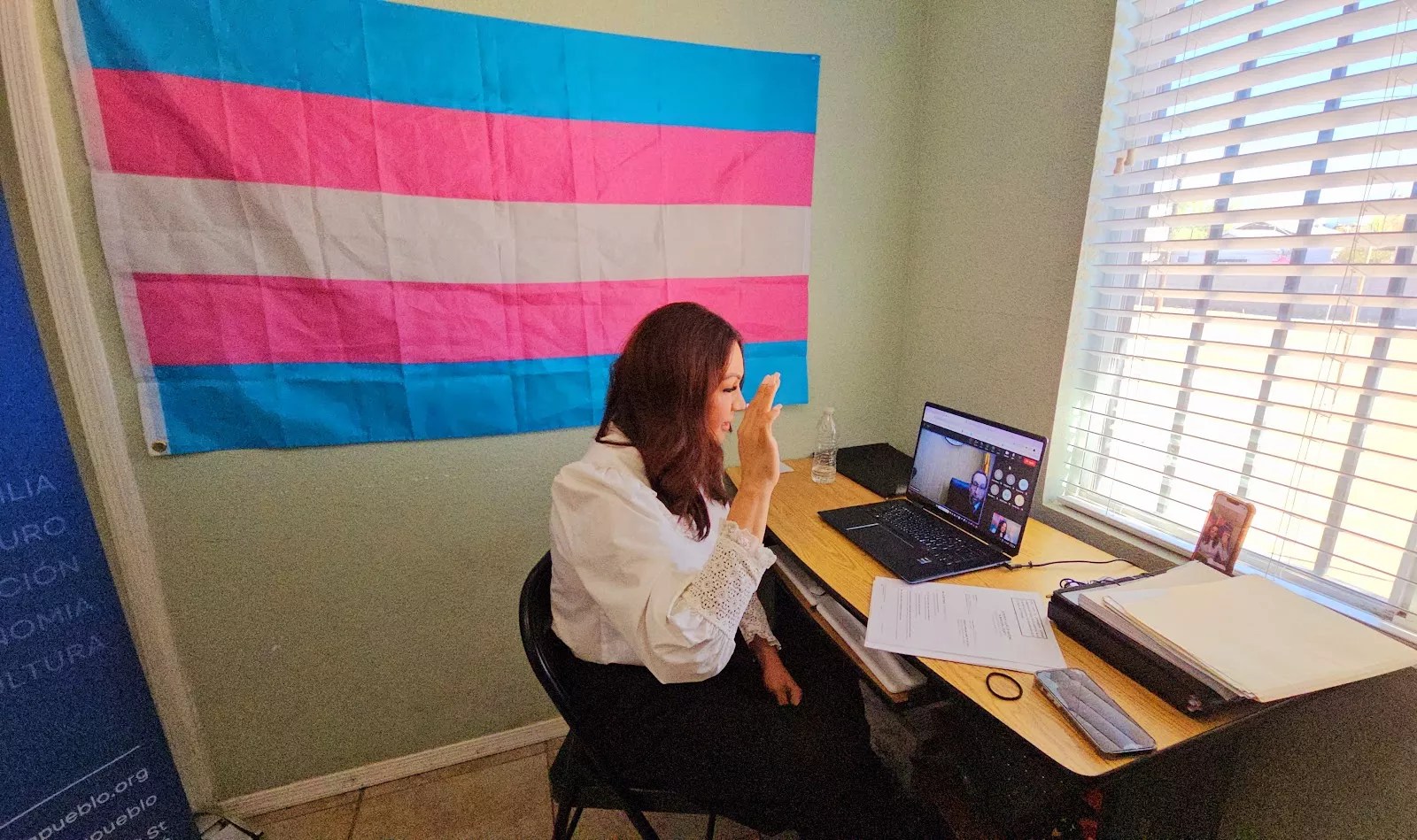
Courtesy of Ybarra Maldonado Law Group

Audio By Carbonatix
Families unwilling to leave their homes to buy groceries. Parents unenrolling their kids from school. Children afraid of being separated from their parents.
Arizona’s rightward turn on immigration – as a result of Donald Trump’s mass deportation goals and the passage of Proposition 314 in November – is already having an enormous impact on undocumented and mixed-status families. Amid the ever-present threat of U.S. Immigration and Customs Enforcement raids, Arizona’s immigrant communities are trying to manage their anxiety and survive.
It’s a scary time, but helping them is a determined community of legal professionals. They are immigration lawyers and paralegals and community organizers, many of them veterans of the battles against former Maricopa County Sheriff Joe Arpaio and Arizona’s infamous “show me your papers” law, Senate Bill 1070.
This moment is bigger. The opponent, the federal government, is stronger. And Arizona’s immigrant rights community is hoping to hold the line.
“During 1070, there was hope that federal courts would step in and help because it was just a local fight,” said Ray A. Ybarra Maldonado, the founder and principal attorney of Ybarra Maldonado Law Group. “Now, we have the opposite. That Arpaio rhetoric is in the White House. They’re finishing what he started.”
As a result, legal professionals say their work now feels exceptionally heavy and exhausting. The number of calls they receive can be overwhelming, and the onslaught of executive orders from the Trump administration offers no pauses to catch one’s breath. Francisco X. Aguirre, a paralegal and owner of Beyond Attorneys, often finds himself working from 2 in the morning until 6 in the evening to handle his caseloads, which have been steadily increasing since Trump was reelected in November.
Families’ futures are at stake, and advocates like Aguirre and others work hard to ensure no detail is left unexamined. Much of it is preparing for the worst – sorting out guardianship for children and planning for a feared arrest and deportation. “Make a list of names, bank accounts, emergency contacts, and your kids’ schools, and leave it with a documented person you trust,” Aguirre said. “No one is conveying that with enough urgency, and that’s frightening.”
Some of their work is geared toward making sure the worst doesn’t happen. Though Trump has stated he wants to deport all of the roughly 11 million undocumented immigrants in the country, many might qualify for protections that would allow them to remain in the U.S.
“Sometimes we catch something they didn’t even know they were eligible for, like a U Visa for victims of crime, deferred action for labor abuse, or protections for those who have been here for decades and have children or spouses born in the U.S.,” Maldonado said. “There are a lot of cases that have looked really bad at the beginning, but ultimately resulted in victory.”
The cost of seeking legal representation remains a major barrier for undocumented immigrants, as is the time it takes for cases to move through the legal system. Many families are left with few options. Maldonado offers free legal advice via social media when possible.
Local grassroots organizations like Aliento AZ try to pick up the slack, sharing protective resources while caring for the day-to-day needs of undocumented people. José Patiño, Aliento’s vice president of education and external affairs, is working with ACLU Arizona to secure more pro bono legal representation for undocumented families. Legal support is just one piece of the puzzle.
“We partner with schools to provide training and mental health workshops for students, teachers, and parents,” Patiño said. “But the fear is there. One principal told me that kids are already starting to unenroll. It’s heartbreaking. We want to help these kids still live their lives as best as they can.”

José Patiño, Aliento’s vice president of education and external affairs, with Aliento Founder & CEO Reyna Montoya.
Courtesy of Aliento AZ
Not just a job
It’s grinding work, all the more stressful because it never really stops. While people in other professions may be able to knock off work to hit up happy hour, those helping the undocumented are members of the same community. For them, the work is personal.
The legal help shows up in black and white. It’s there in the court petitions attorneys file and in the “Know Your Rights” material they distribute. But the emotional help takes an unseen toll.
In addition to providing legal guidance, immigration advocates find themselves offering emotional support to their clients. Empathizing isn’t hard – what’s happening to clients also feels like it’s happening to them.
“It’s been disheartening seeing everything happening, but we keep going because we have the ability to do so when others can’t,” said Sarai Mercado, a paralegal at Silva & Fontes Attorneys at Law. “What we do is not just a job, especially because we are immigrants. This is happening to us, to our parents, our siblings, our families, our friends, and our community. We remind ourselves of the support our loved ones would need in situations like these and give that to our clients.”
Mercado said their firm’s daily call volume has increased to the point that it’s difficult to track. Keeping up has required not only two legal assistants but also Mercado and the firm’s two attorneys. When a client is detained, everyone must shift gears quickly, placing other work on the back burner.
On top of that, the terrain keeps shifting beneath their feet. Every executive order – or subsequent legal challenge – might alter the options for an undocumented client. Staying on top of it all is like drinking from a fire hose.
“Every day there’s a new announcement, a new change, a new executive order,” Mercado said. “What we told our clients a few months, a few weeks, or even a few days ago may no longer be valid when we walk into the office the next day.”
It’s additionally stressful when you’re a member – or are serving members – of more than one community targeted by Trump’s administration. Trans Queer Pueblo runs a fully autonomous health care clinic for undocumented LGBTQ+ Arizonans, who are facing the brunt of Trump’s immigration crackdown and his targeting of transgender people.
“People are worried about how (Trump’s) clear transphobia will impact the trans community, especially since a lot of our asylum cases regard our gender,” said Sonix Flores, the media coordinator for the group. “But we’re staying focused.”
Notching a victory certainly helps morale. Trans Queer Pueblo partners with Phoenix Legal Action Network and other pro-bono legal organizations to provide representation. So far, Flores said, the organization has taken on 19 immigration cases – all of which they’ve won.

Victoria Lafayette, a trans woman who attended Trans Queer Pueblo’s name change
clinic, appears virtually at a court date.
Courtesy of Trans Queer Pueblo
Anti-immigrant rhetoric
The demonizing rhetoric about immigrants takes an undeniable toll. The Trump administration has perpetuated the myth that being undocumented constitutes a crime, returning to the “illegal alien” terminology that many hoped had gone out of style.
“Right now, our federal government is defining all immigrants as criminals,” said Margarita Silva, an attorney at Silva & Fontes. “But not every undocumented immigrant is a criminal, or even an accused criminal. I wish there would be pushback on that.”
Silva acknowledges that the threat of deportation has always loomed over people without valid visas, no matter who was in the Oval Office. But she hates that the country is now treating deportation as a first resort rather than a last. “If someone has their fees paid and is just waiting for a final stamp, shouldn’t we leave that person alone?” she asked.
The Trump administration’s answer is an emphatic no.
“This administration has made it clear that they refuse to make any distinction and they’re looking at numbers,” Silva said. “There is no priority anymore – it’s just whoever they can grab.”
Patiño agrees, noting that there’s more clemency available for insurrectionists than law-abiding undocumented immigrants who have been in the country for decades.
“The Jan. 6 rioters were immediately pardoned, yet immigrants who have been in this country for decades are struggling,” Patiño said. “It feels like you have this original sin and you’ll never be forgiven. At what point in time is it forgivable?”
There’s a certain hopelessness inherent in that question, given the damage Trump is determined to do to immigrant communities. The fight against those efforts will be long and difficult. Families will be separated and longtime residents with no criminal records will be deported.
For those helping immigrants, those long odds make it tough to get up in the morning. They have to muster the will to answer that next call, to file that next court motion, to drop everything and figure out where ICE is holding someone’s spouse or parent. Having been through the wringer with Arpaio, Aguirre reminds himself that he’s been preparing for this for a very long time – longer than many clients, many of whom have told him that they believe deportations would happen so swiftly.
That keeps Aguirre and others going. No matter how hard, exhausting and frustrating the first weeks of the Trump administration have already been – no matter how much worse things will get – they are not giving up.
“We are here for (our clients) now, no matter how difficult the government makes it,” Mercado said. “We immigrants are fighters.”